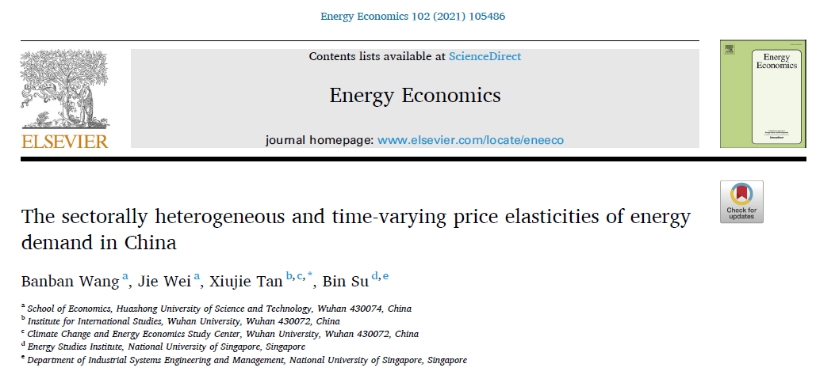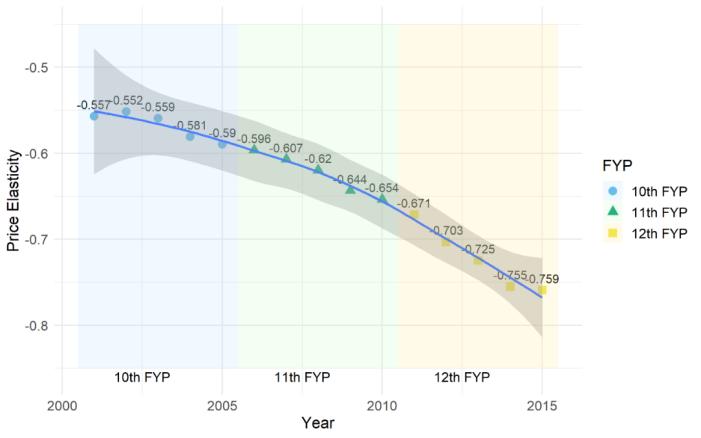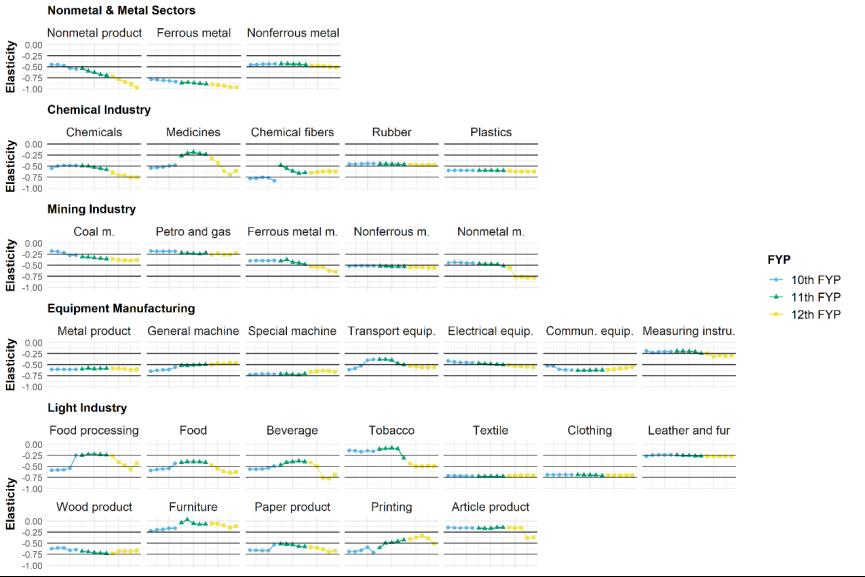On July 31st, Associate Prof. WANG Banban and WEI Jie from the School of Economics, Huazhong University of Science and Technology, published their latest research on Energy Economics. The paper titled “The sectorally heterogeneous and time-varying price elasticities of energy demand in China”, was a collaboration with Associate Prof. TAN Xiujie from Wuhan University and Senior Researcher SU Bin from the Energy Studies Institute, National University of Singapore, Singapore.

China has put forward the goal of carbon neutrality by 2060. The green and low-carbon transition of the energy system is imminent. In related research, accurately estimated price elasticities of energy demand are crucial parameters for policy evaluation. Therefore, this study applies a semiparametric varying coefficient model to estimate the sectoral heterogeneity and time-varying price elasticities of energy demand in China’s 36 industrial sectors from 2001 to 2015. The paper has several important findings.
First, the yearly weighted average price elasticity (in absolute terms) increased during the sample period. It initially grew slightly during the 10th FYP, then experienced an increase during the 11th FYP, and continued rising during the 12th FYP.

Figure 1 Yearly-averaged price elasticities
Second, the price elasticities of energy demand in China’s industry show significant sectoral heterogeneity (from 0.03 ~ -0.97. The weighted mean price elasticity of the sample was -0.658, while the values and changing patterns varied among sectors. The nonmetal and metal sectors and the chemical industry are the groups with the largest price elasticities. The mining and equipment manufacturing sectors are close to the sample average value. The light industry sector shows the largest degree of heterogeneity.

Figure 2 Price Elasticities by Sector and Year of Different Types of Sectors
The sector-specific and year-specific price elasticities of energy demand are expected to provide key parameters for China’s energy and climate policy assessment and energy-social-economic models. They help to better understand the responses to price changes and policies such as energy or carbon taxes, energy subsidies, energy efficiency, for individual sectors over time. Therefore, this study could serve for more accurate policy evaluation and energy transition studies under the carbon neutrality goal.
Associate Professor WANG Banban’s research interests are around climate and environmental economics and policies. She is the author of several publications on Energy Economics, Energy Policy, Climate Policy, etc. Associate Professor WEI Jei focuses on econometric studies such as panel data, factor models, semiparametric and nonparametric models. They both host several projects funded by the National Natural Science Foundation of China and Ministry of Education, China.
Link to the paper: https://doi.org/10.1016/j.eneco.2021.105486.
Written by: Wang Banban
Edited by: Andrew, Peng Yumeng
